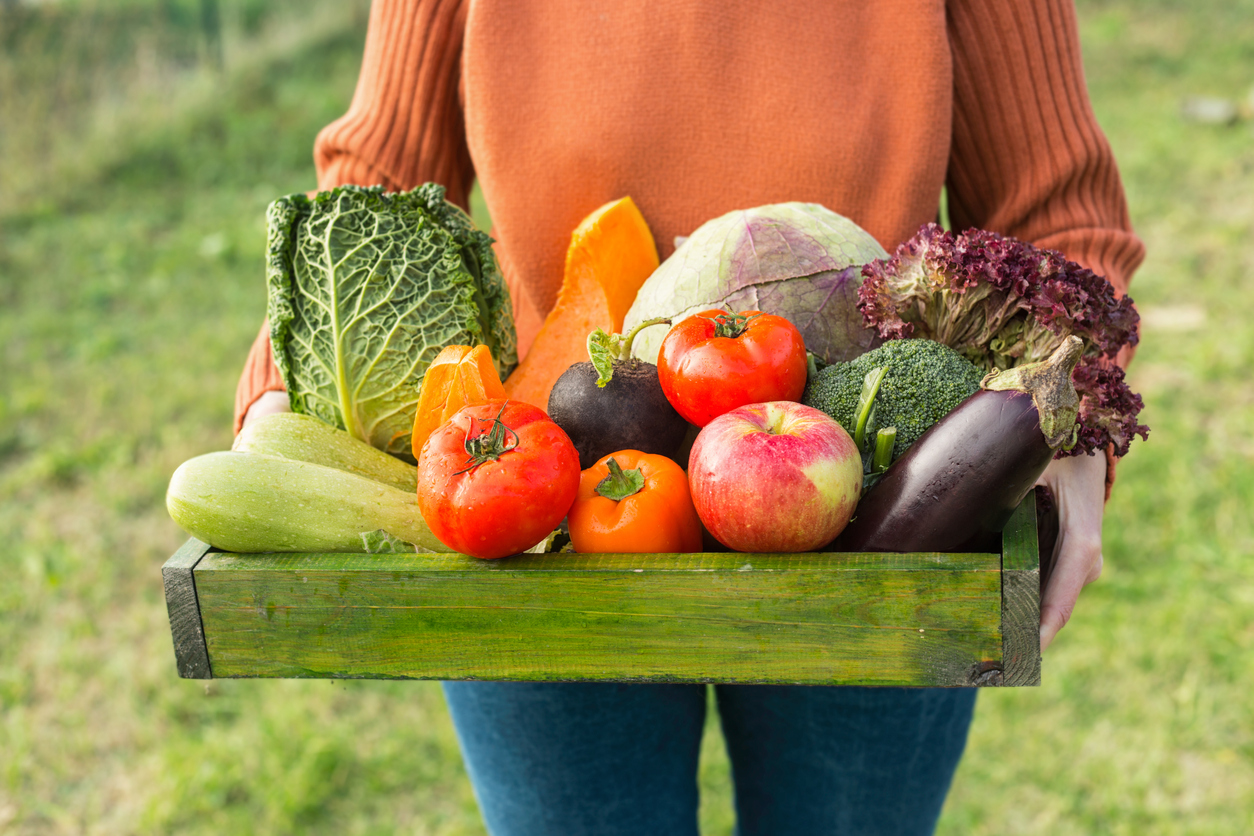If you could step into a time machine and go back a few generations, you’d have a heck of a time trying to find organic vegetables at the supermarket. Why? No one was growing organic vegetables. There was no such thing. People just grew gardens. It was as simple as that.
Then in the 1930s, the first pesticides were introduced to farming. I won’t go into a full history of the Great Depression, the Dust Bowl, the industrial advances of the 1940s and 50s, and the prevalence of monocropping, but the combination of these events led to an explosion in the use of pesticides in agricultural settings. While chemicals like DDT were discontinued in the 1970s, there are still numerous pesticides on the market. According to Grand View Research, the global “home and garden pesticides market” has a whopping value of more than $6.8 billion dollars!
Naturally, (no pun intended) the rise in pesticide use came with a parallel rise in the organic farming movement. Today, national organic standards essentially mean that a product is grown free of synthetic substances, and pests and disease are controlled through biological means, such as interplanting. So what does all this matter to you in growing organic vegetables? I’m glad you asked!
Discover 10 top tips for growing, harvesting, and enjoying fruits, vegetables, herbs and more from your home garden—when you access the FREEBIE How to Grow a Vegetable Garden, right now!
What you need to know to be successful in growing organic vegetables
Anyone who’s planted a garden can tell you that insects, diseases, and any other number of issues can ruin your plants. If you don’t mind spraying chemicals and pesticides on your plants, some of this is easy enough to control. But there are some good reasons to skip the chemicals and focus on growing organic vegetables. There are also a few issues to be aware of. So why grow organically?
1. Bees. You are, no doubt, aware that bees are both incredibly important and in trouble. By some estimates, bees are responsible for the pollination of some 75 percent of food crops in the world. They help pollinate many of your vegetables, too, leading to greater yields. Bees are also dying in frightening numbers. A 2019 article in Wired Magazine points to pesticides as an undeniable culprit. In other words, growing organic vegetables saves the bees, which, in turn, means we can all eat.
2. Pesticides starve your plants. Those pesticides you spray on your plants can end up in the soil, where it kills many of the microorganisms that feed your plants. So even though pesticides may help with plant fungus or insects, the larger impact is detrimental all the way around.
3. Pesticides work their way up the food chain. The pesticides you spray end up on insects that birds eat. Then your cat eats that bird. You don’t want to spray pesticide on your cat, do you?
4. Pesticides end up on your dinner table. Eww. How much more do I need to say about this? I don’t know about you, but I’m not so into flavoring my food with “Insect Killer Flower & Vegetable Garden Dust.”
5. Pesticides end up in your water. Ew, again. Runoff from pesticides ends up in area watersheds or in the ground water. Is that really what you want to add to your glass of water?
To be fair, there are reasons people use pesticides and chemicals in their garden. Growing organic vegetables is not without some issues. Let’s take a look at some of those, as well as solutions.
Discover 10 top tips for growing, harvesting, and enjoying fruits, vegetables, herbs and more from your home garden—when you access the FREEBIE How to Grow a Vegetable Garden, right now!
6. Bugs may eat your plants. The wrong kinds of bugs will ruin your garden. Aphids, tomato hornworms, and white flies can all do a lot of damage to your veggies. There are, however, a number of solutions, such as companion planting or introducing beneficial insects, like the lady beetle (ladybug).
7. Soil can get depleted. Over time, the soil in your garden will lose nutrients. A simple way to deal with this is to add nutrient-rich compost to your garden each year. And rotate your crops.
8. Grubs and other pests kill seedlings. It’s a real bummer when bugs in the soil kill your seedlings before they can even get started. One solution that works is to “plant” a cardboard collar around your seedlings when you plant them.
9. Diseases. Plant diseases can be a big problem, and if you have the same plants close together, a virus can spread quickly. Intercropping and spreading your plants out is a good solution here. It’s also helpful if you can catch the problem early on and remove the infected plant. Don’t throw it in your compost, though, or the virus will end up back in your garden.
10. Mildew. Fungal diseases can also ruin your vegetables. Your best solution here is to make sure there is enough space between your plants so there is ample air circulation.
Growing organic vegetables does take a little more effort and consideration, but it’s not as challenging as it might seem, and it’s so much better for you and the environment, that it seems well worth the extra work.
What are your thoughts on growing organic vegetables? Do you think some non-organic growing is okay or do you stick with organic methods? I’d love to get your thoughts in the comments.
Discover 10 top tips for growing, harvesting, and enjoying fruits, vegetables, herbs and more from your home garden—when you access the FREEBIE How to Grow a Vegetable Garden, right now!
